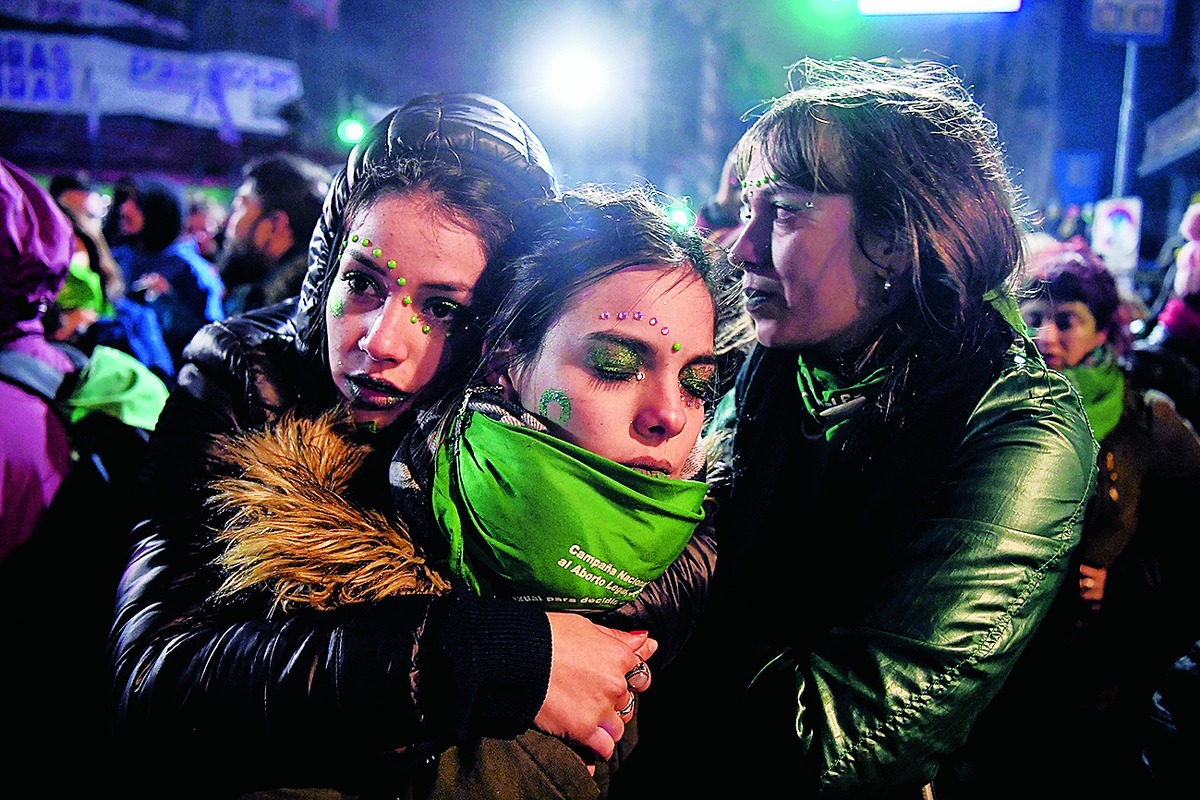
Buenos Aires: Argentina's Senate on Thursday narrowly rejected a bill to legalise abortion, dealing a stinging defeat to a grass-roots movement that pushed reproductive rights to the top of the country's legislative agenda and galvanised women's groups throughout Latin America.
The lead-up to the vote gripped the nation as opposing camps fought to sway undecided senators until the final hours. As senators debated the bill for more than 16 hours, thousands of advocates on both sides gathered outside Congress, and the Roman Catholic Church held a "Mass for Life" at the Buenos Aires Metropolitan Cathedral.
Proponents of the bill - which would have allowed abortions during the first 14 weeks of pregnancy - had hoped Argentina would begin a sea change in reproductive rights in a largely Catholic region where 97 per cent of women live in countries that ban abortion or allow it only in rare instances.
Thirty-eight lawmakers voted against the bill, 31 voted in favour of it and two abstain
Just weeks ago, the abortion-rights campaigners appeared to have a good chance of success, stunning opponents. But Opposition hardened as Catholic Church leaders spoke out forcefully against abortion from the pulpit and senators from conservative provinces came under intense pressure to stand against the bill.
"This bill did not solve anything," Senator Olga Inés Brizuela y Doria said after the vote. "We have to go to the causes of abortion and not abortion as a solution."
As soon as the voting result was announced, fireworks started going off on the anti-abortion side of the plaza outside the Congress building. Shortly after, a few protesters in support of abortion rights lit fires and threw rocks at the building and gathered police officers. The clashes were short-lived, but local reports mentioned an unspecified number of detentions.
Argentines from both camps had waited outside for much of the night as the senators debated and voted, wearing handkerchiefs that indicated their feelings toward the bill - green for its passage, blue against.
"We knew it wasn't going to pass, but we felt we had to be here anyway to make our presence felt," said Jimena Del Potro, a 33-year-old designer with a green handkerchief around her wrist who fought back tears as she spoke.
"We will no longer be silent and we won't let them win. Abortion will be legal soon. Very soon."
María Curutchet, a 34-year-old lawyer with a blue handkerchief around her neck, had a wide smile on her face despite spending almost eight hours in the cold of winter to express her opposition to abortion.
"It was a very emotional day," she said. "We were out in huge numbers and showed that we will defend the two lives, no matter the cost."
While the proposal's defeat was considered a major setback for the grass-roots activists who backed it, analysts said the movement's improbable rise had already begun to change the region in ways that would have been impossible just years ago.
"Abortion rights was a priority and it will be deeply discouraging to have come this far and fail," said Benjamin Gedan, an Argentina expert at the Woodrow Wilson International Center for Scholars.
New York Times News Service











